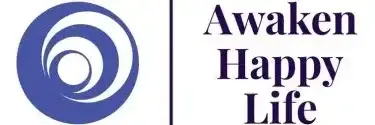7 Best Self-Help Workbooks You Can Use at Any Age
What are the best self-help workbooks when disempowering thoughts and beliefs bring devastating consequences, with physical and mental illness, loneliness and bankruptcy in the lead? hat is worse, according to the National Science Foundation, 80% of our thoughts are negative, and 95% of these thoughts are repetitive.
Almost 4% of people worldwide suffer from depression, and 60% of them also struggle with anxiety. ccording to WHO, more than 720,000 people die due to suicide every year. hat is worse, not everyone likes seeing a psychologist or counsellor, or these services are too expensive.
Is there a solution? I have compiled a list of 7 best, proven self-help workbooks for transforming negative thoughts and beliefs and taking more effective action. These workbooks are suitable for anyone at any age. I tested these workbooks, and some are still being used.
Using these workbooks makes it easier to overcome your challenges, improve your mental and physical health, and create nourishing relationships and abundance in your life.
You might know some or most of these titles and think that nothing new is available here. Read the reviews and the buyer’s guide first and decide which book you could recommend for people who need help with their mental and emotional challenges.
1. Anthony Robbins – Giant Steps
Best for life coaches and anyone willing to transform their life long-term, step-by-step
The downside of the book is that the transformation process is long-term, and you need to commit to spending some time daily on reflection and exercises. This may be discouraging and overwhelming at first. Also, there is no ready notebook, so a separate journal is necessary.
Additionally, in the case of profound mental health issues and traumas, you need the help of a professional as well.
PROS
- baby steps, presented in a motivating way,
- portable format,
- variety of tools suitable for any area of life.
CONS
- separate journal needed,
- you may need a professional for help in some cases,
- long-term work.
2. Stephen R. Covey – The 7 Habits of Highly Effective People Workbook
For coaches and anyone aiming at complex life redesign – personally and in relationships
However, some people claim that the ideas presented in the book are outdated (“synergy”) or cheesy (“sharpen the saw”). Changing requires discipline and following the steps presented by the author.
Some habits need the appropriate level of awareness and personal growth to be applied (e.g. the “win-win” level may be challenging to achieve without prior forgiveness and healing traumas ).
Also, you might have too little space for your comments and need another journal. The workbook aligns well with biblical principles, but you should read it for yourself.
Furthermore, some critics have stated that the model oversimplifies complex issues and is inapplicable in all cultural contexts.
PROS
- clear exercises,
- suitable both for personal and career development,
- good for polishing time- and personal management.
CONS
- some ideas may be outdated and cheesy,
- unsuitable in some cultural contexts,
- some habits need a higher level of growth to be applied.
3. Brian Tracy – Maximum Achievement
For personal and business excellence, it is excellent for life management
On the contrary, this book is not suitable for people with severe mental health problems, and It simply does not address many specific challenges, e.g. of people with post-traumatic disorder.
Only the mental aspect of self-development is discussed and promoted, with little or no reference to the holistic idea of personal growth.
The tools concerning creating happy relationships described by the author are not suitable in the case of domestic abuse and violence.
Some of the tools described in Maximum Achievement are also found in books published by Biran Tracy. Moreover, the exercises cannot be done without reading a given chapter earlier.
PROS
- a very motivating and inspiring book,
- exercises include real assignments,
- exercises and tools based on long-term experience.
CONS
- tasks do not exist without the book,
- some of the techniques may not be effective in some cases (e.g. domestic violence),
- many similar exercises are found in other books by Bian Tracy.
4. Louise Hay – Love Yourself Heal Your Life Workbook
For counsellors and anyone who wants to improve relationships, heal their emotions
However, the exercises are very touching and profound. Although the affirming tool may seem simple, in some cases, the reader may need the help of a professional to bear difficult emotions and traumas.
Doing the exercises needs determination and sometimes courage, e.g. to face anger or practise forgiveness because the transformation of emotions can be painful.
The workbook will not be practical enough if you are currently the victim of domestic violence, living with the abuser, and are at risk of constant abuse. The same applies to people deeply addicted and unable to control their lives; they may not be willing to implement the exercises.
PROS
- helps overcome heartbreak and bereavement,
- you become stronger emotionally after doing the exercises,
- the book can be used as a journal.
CONS
- you may need the help of a professional to do some exercises,
- not enough if you currently face abuse,
- you may face some emotional pain during the transformation.
5. David D. Burns, MD – The Feeling Good Handbook
For psychologists, psychiatrists, and counsellors, it is a tool for their work and as a reference for their patients.
The downside of the book is that it can be overwhelming and discouraging due to the problematic and uncomfortable mental health issues discussed there. In addition, you need a Kindle edition to print the mood logs or rewrite them yourself. Moreover, the available Kindle version has some quality issues reported by Amazon customers, so the paper version is more reliable. But then an extra journal may be necessary.
Besides, you usually need the help of a professional to implement the exercises, at least at the beginning, especially while suffering from deep anxiety, depression or suicidal thinking incidents.
CBT is a long-term process, and to achieve visible results, the therapy may be long and also require the courage to face the discomfort of implementing new behaviour patterns. gain, the professional may need help mastering the technique of CBT.
PROS
- written by a professional familiar with the problem,
- CBT helpful in overcoming anxiety, depression and timidity,
- helpful to heal traumas and teach courage.
CONS
- requires long-term effort, and work can be full of discomfort,
- requires the help of a professional,
- and you need an extra journal for work.
6. Susan Jeffers – Feel the Fear… And Beyond
This is for anyone who dares to create a happy life by taking responsibility for every aspect and is open to taking on new opportunities.
However, this book may be intimidating and instil fear in some people. You need to overcome resistance and face the discomfort of fear.
Also, in the case of anxiety and phobias, this book may not be enough to cope with these mental health challenges. his drawback also applies to the case of active domestic abuse, where more kinds of help to overcome the fear are needed.
PROS
- teaches responsibility for life,
- strengthens mentally and emotionally,
- written for a wide demographic of readers.
CONS
- requires the courage to face the discomfort of pain,
- insufficient for people facing active domestic violence or profound mental health issues.
7. Nathaniel Branden – The 6 Pillars of Self-Esteem
Best for anyone who wants to start the journey with self-development, coaches and counsellors.
On the contrary, the book is not a typical workbook and requires effort to implement the sentence completion technique. You need to have the courage to face your shades.
Also, you need an extra pocketbook to learn more about Nathaniel PhD Branden’s techniques. his item is not the subject of this review.
In some cases, you may need the help of a professional because some weeks may be harder to digest due to unhealed traumas, bereavement, or heartbreak.
PROS
- the bible, for anyone starting the self-development journey,
- teaches real self-esteem,
- the practical and straightforward technique of discovering solid and weak points.
CONS
- you need an extra pocketbook and journal to make the most of the book,
- you may need the help of a professional in some cases,
- unsuitable if you avoid discomfort and commitment.
Buyer’s Guide
To choose the right book for you, take into account the following issues:
- Do you intend to work alone or with the help of a professional? In the first case, I would recommend Giant Steps or Maximum Achievement. Feeling Good is suitable in both areas.
- How well do you know the subject of self-help?
- Are you struggling with severe mental health challenges (e.g. phobias, depression)? hen S. Jeffer and D. Burn’s books will be the most suitable.
- Do you want to focus on mastering your mind or the health of your emotions? In the first case, Giant Steps and Maximum Achievement will be the best choices, while Feeling Good, Love Yourself, Heal the Life Workbook, and Feel the Fear and Beyond will be the best choices in the second one. Nathaniel Branden’s sentence completion works both ways.
- Do you need the workbook written by a professional with extensive experience? hen check Covey, Tracy, Burns, and Branden’s books.
- Do you need baby steps or assignments? iant Steps and The Six Pillars of High Self-Esteem are the most suitable.
- How long do you intend to work on self-development using a self-help workbook?
- Which area of your life do you want to change? David Burns, Louise Hay and Susan Jeffers focus on mental health, while Tony Robbins, Stephen Covey, Nathaniel Branden and Brian Tracy’s books are more holistic.
- Which technique is the best for you (e.g. affirmations, – S. Jeffers, L. Hay; sentence completion method – N. Branden, questions – A Robbins, B. Tracy, L. Hay, S. Covey, CBT and journaling – D, Burns)? how well, do you know the chosen technique?
To find your favourite book easier, here is the table of contents again:
If you need a separate journal, check them here.
Related Articles And Reviews
More Content on Awaken Happy Life
Explore More on Awaken Happy Life:
- Aura and Chakras (7)
- Emotions (7)
- Energy Field Care (15)
- Energy Healing (10)
- Happy You (5)
- Mental Challenges (4)
- Mental Health (15)
- Mind (17)
- Personal Development (11)
- Relationships (7)
- Self-Healing (8)
- Spiritual Growth (8)
- Spirituality (11)

